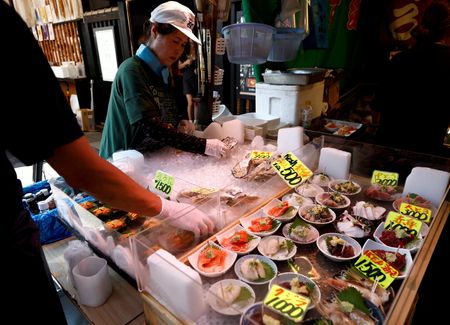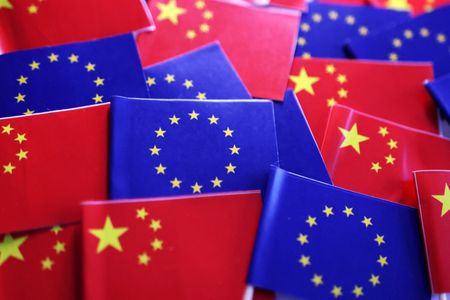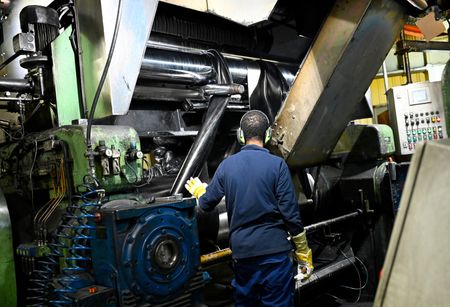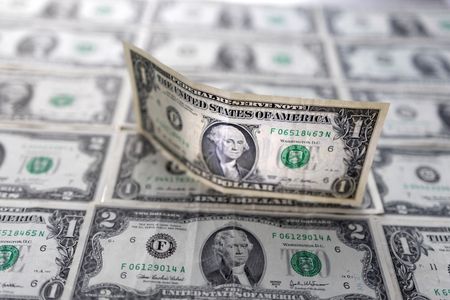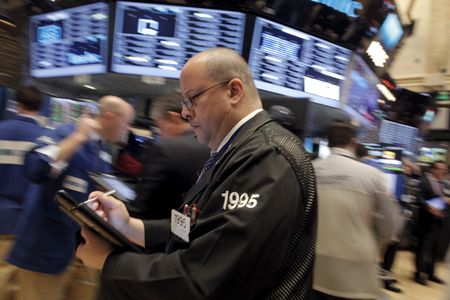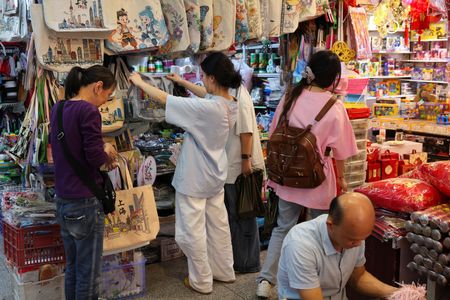By Leika Kihara
TOKYO (Reuters) -Japan’s core consumer prices rose 2.9% year-on-year in September, data showed on Friday, staying above the central bank’s 2% target and keeping alive expectations of a near-term interest rate hike.
The data will be among factors the Bank of Japan (BOJ) will scrutinise at its two-day meeting next week, when the board will debate whether to keep interest rates steady at 0.5% and issue fresh quarterly growth and price forecasts.
The increase in the core consumer price index (CPI), which excludes volatile fresh food but includes fuel costs, matched a median market forecast and accelerated from a 2.7% rise in August.
An index stripping away both volatile and fresh food and fuel costs, which is more closely watched by the BOJ as a better gauge of underlying price trends, rose 3.0% in September from a year earlier, compared with a 3.3% increase in August.
The increase was driven by a renewed rise in energy costs and continued increases in food prices, which rose 7.6% in September excluding volatile fresh food items, the data showed.
Service-sector prices rose 1.4% in September from a year earlier, much slower than a 4.2% increase in goods prices, a sign firms are only gradually passing on higher labour costs.
“As things stand, both inflation excluding fresh food and inflation excluding fresh food and energy are on track to meet or overshoot the BOJ’s forecast for the ongoing fiscal year,” said Abhijit Surya, senior economist at Capital Economics.
“Even so, the Bank’s messaging has remained cautious in recent weeks, and it doesn’t suggest that a rate hike is imminent,” Surya said, projecting the BOJ to wait until January before resuming rate hikes.
The BOJ exited a decade-long, radical stimulus programme last year and raised short-term interest rates to 0.5% in January on the view Japan was on the cusp of sustainably hitting its 2% inflation target.
While consumer inflation has exceeded the BOJ’s 2% target for well over three years, Governor Kazuo Ueda has stressed the need to tread cautiously in further rate hikes on uncertainty over the impact of U.S. tariffs on Japan’s economy.
He has also said Japan needs to see sustained inflation driven by solid domestic demand and wage gains, for the BOJ to resume its rate-hike cycle.
But two of the BOJ’s nine board members dissented to the bank’s decision to keep rates steady in September and proposed unsuccessfully to raise borrowing costs to 0.75%, a sign of the bank’s increased focus on inflationary risks.
(Reporting by Leika Kihara; Editing by Muralikumar Anantharaman and Sam Holmes)

